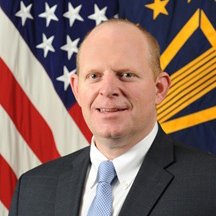
Investigation: Former Marine Corps IG ‘habitually’ misused his position during tour in Iraq
The Pentagon's inspector general found a senior Marine commander — who is also a former Marine Inspector General — tasked an aide with jobs that compare wit...
An investigation by the Pentagon’s inspector general has substantiated allegations that a senior Marine Corps commander routinely misused his position while serving in the fight against ISIS in Iraq, including by requiring his aide to do personal business for him and accepting improper gifts and loans.
Brig. Gen. Rick Uribe, then the director of the Combined Joint Operations Center in Baghdad, assigned his aide-de-camp to a variety of non-official tasks during his one-year deployment, including to pick up his dry cleaning, change his bedsheets, bring him meals and draft his personal correspondence, according to investigators.
In other examples, he regularly told the aide (a female officer whose rank was not disclosed) to reserve gym equipment he wanted to use by standing next to it for 45-minute periods while he attended to other matters, the IG said. When he failed to bring enough of the prescription toothpaste he needed for his deployment, it became his aide’s job to procure a new supply.
“Brig. Gen. Uribe showed a habitual pattern of requesting, or permitting, his aide to use official time to perform tasks and errands other than those required in the performance of the aide’s official duties,” the DoD inspector general wrote in a report released Thursday.
The investigation began with a complaint to the IG’s hotline, describing the aide’s deployment with Uribe in 2016 and 2017 as an “entire existence centered on personal servitude.”
One of the nearly two dozen witnesses investigators interviewed said Uribe should “have known better,” since his assignment immediately before deploying to Iraq was as the Marine Corps’ own inspector general.
In a written response to the DoD IG’s conclusions, Uribe disputed some of the findings, but said he realized that he “improperly employed” his aide.
“Where I would never think to engage in these activities in garrison, in the fog of the combat zone, it seemed acceptable somehow,” he wrote. “I have learned a great deal from this process and will be much more attentive to these issues in the future. At the end of the day as a senior leader, the only thing I am entitled to is to be held accountable for my actions.”
Uribe attributed some of his decisions to the fact that he was, at the time of his depoyment to Baghdad, a newly-frocked general officer who’d never had an aide before. He added that he had never received any official guidance about what duties are proper for aides-de-camp.
And the DoD IG acknowledged that Marine Corps regulations are somewhat vague on the subject. While the military does have specific, written instructions about how enlisted personnel can be employed as aides, those rules don’t directly apply to officers serving in those roles.
On the other hand, DoD’s Joint Ethics Regulation and other guidance make clear that as a general matter, government employees — whatever their position — should only be performing government functions when they’re on official time. Also, their supervisors aren’t allowed to use their positions of authority to contravene those basic principles.
And the OIG found that Uribe received training on precisely those points during multiple sessions, including at an August 2015 Quantico, Virginia, conference he attended, just days before he took over his duties as inspector general of the Marine Corps.
The Corps’ senior ethics official told DoD IG officials that the Uribe matter was not a close call, describing his conduct plainly as “wrong.”
“The problem is the secretary of Defense — a retired Marine general officer — he’s known right now for going to go get his own laundry here in the Pentagon, period,” the official said.
In addition to directing his aide handle his personal business, the IG says Uribe asked her for small cash loans, failed to reimburse her for expenses she personally paid on his behalf, and requested and received gifts, including one for a $150 care package of coffee and chocolates from another Marine lieutenant colonel who had worked for him years earlier.
Investigators deemed that gift impermissible. Gift-giving is perfectly acceptable within the military, just as it is in broader society, as long as it’s a genuine gift between friends and not an improper use of authority. But the lieutenant colonel told investigators Uribe “doesn’t consider me anything other than a Marine who worked for him.”
Uribe disputed the IG’s account of the regularity with which he asked his aide to handle personal tasks for him.
Multiple witnesses said she was seen carrying his laundry “weekly” or “every 3, 4 days,” and the aide herself said she changed and cleaned his bedsheets on several occasions. But the general told investigators those types of incidents happened only once each, and only after she had “volunteered” to do so.
The aide gave a different account to investigators, saying it was clear to her that she would receive negative fitness reports if she declined to comply with Uribe’s requests.
“At the end of the day, I’m going to do what I’m asked to do,” the aide said. “I have no other way of putting it, but he was just — he will treat you like you’re nothing.”
Latest Defense News
She said she had also pointed out to him that some of the tasks he was asking her to handle appeared to fall outside her official responsibilities.
“She showed Brig. Gen. Uribe the Senior Leader Handbook and told him she could assist him with ‘errands when the operational demands didn’t allow him to accomplish tasks himself.’ She added, ‘My intent was to be supportive … assisting with errands here and there is one thing. Completing errands for him on a daily basis is another.’”
The IG said it had taken into account the high operational demands involved in Uribe’s job: at the time, he was responsible for military targeting decisions during a crucial point in the international military coalition’s effort to liberate Iraqi territory that had been occupied by the Islamic State.
But investigators noted that Uribe’s predecessor had exactly the same job in a similar operational environment. That official, Maj. Gen. William Mullen, appeared to have been able to handle all of his personal business, including his laundry, without assigning those tasks to his military aide.
Speaking to investigators, Mullen’s former aide concurred with that assessment.
“In your opinion, should an aide pick-up laundry or meals for his general?” the IG asked.
“No,” the officer responded. “Am I a leader of Marines or am I a valet?”
Uribe left Iraq in June 2017, and now serves as the deputy commanding general of the 1st Marine Expeditionary Force.
The DoD IG recommended that the Marine Corps take “appropriate action” against Uribe in response to its findings of misconduct, but also that the Marines and the Defense Department clarify their policies about what aides who are also military officers should and should not be asked to do.
“Although the DoD, the U.S. Navy, and the U.S. Marine Corps have published specific formal policies governing the use of enlisted aides, there are no formal policies among the military services or the Joint Staff addressing the use of officer aides,” the IG wrote. “Accordingly, we recommend that the office of the undersecretary of Defense for personnel and readiness promulgate a formal policy to the military services that governs the management and proper use of officer aides. We will close this recommendation when we confirm that the DoD has published a formal policy on the management and proper use of officer aides.”
Copyright © 2024 Federal News Network. All rights reserved. This website is not intended for users located within the European Economic Area.
Jared Serbu is deputy editor of Federal News Network and reports on the Defense Department’s contracting, legislative, workforce and IT issues.
Follow @jserbuWFED






